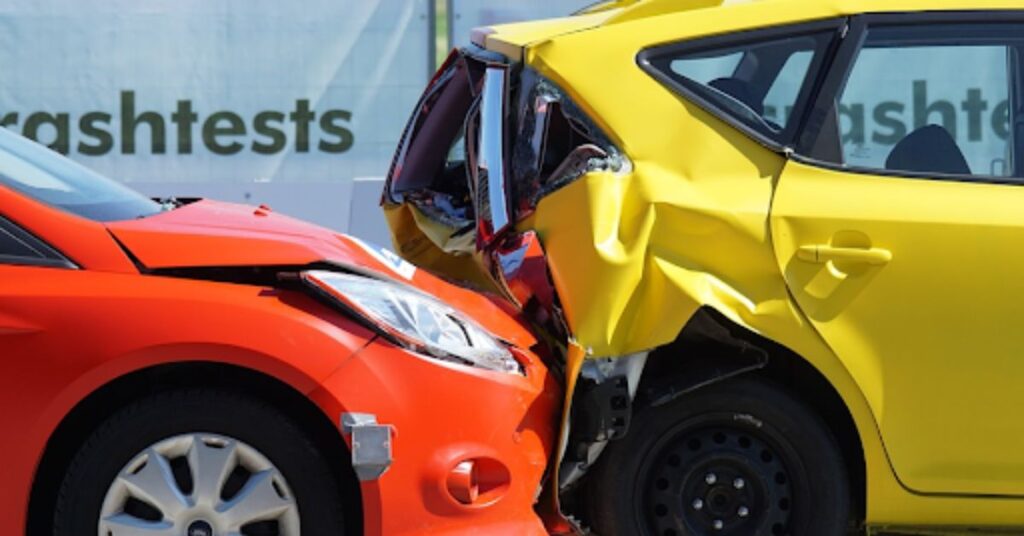Car accidents can quickly lead to complicated legal disputes, especially when determining fault or negotiating settlements. The car insurance policy you hold plays a major role in shaping the outcome of these cases.
From covering damages to influencing courtroom strategies, your coverage, or lack of it, directly impacts your financial liability and potential compensation. Insurance companies often assess fault, negotiate payouts, and interact with all parties involved, making their role pivotal.
Whether you’ve been involved in an accident or are looking for ways to protect yourself in the future, this article explores how car insurance affects legal cases after a crash.
The Role of Car Insurance in Determining Fault
Your car insurance is often the first tool to establish fault after an accident. Insurers review police reports, witness statements, and physical evidence, such as vehicle damage. Their findings can heavily influence how responsibility is assigned.
If your insurer deems you at fault, your liability coverage pays for damages to others, while collision coverage may handle your repairs. For accidents where the other driver is responsible, their insurer typically covers your losses.
State laws also shape this process. In no-fault states, insurance compensates drivers regardless of fault but limits lawsuits for damages. Conversely, in at-fault states, proving the other driver’s responsibility becomes essential for recovering full compensation.
How Insurance Policy Limits Affect Compensation
Every car insurance policy comes with set coverage limits. These caps define how much the insurer pays for damages in an accident.
If you have minimum liability insurance, your policy might only cover a portion of the other driver’s medical bills or property damage. Anything beyond that limit could leave you personally responsible for out-of-pocket payments.
High-cost accidents often expose gaps in coverage. For example, if the total damages reach $100,000 but your liability insurance maxes out at $50,000, you may be sued for the remaining amount. This scenario underscores how critical reviewing and potentially increasing your limits is.
Uninsured and Underinsured Motorist Coverage Scenarios
Not every driver on the road carries sufficient insurance, leaving others at financial risk after an accident. Fortunately, uninsured and underinsured motorist (UM/UIM) coverage steps in to bridge the gap.
If an uninsured driver causes a collision, UM coverage can pay for medical bills or vehicle repairs. Similarly, UIM coverage kicks in when the other driver’s liability insurance doesn’t meet your expenses, covering what their policy leaves unpaid.
State laws vary on whether carrying UM/UIM coverage is mandatory, but it’s a critical safeguard regardless. Without this protection, you could end up paying for damages out of pocket if the at-fault motorist lacks adequate insurance.
Insurance Adjusters and Their Influence on Legal Cases
After a car accident, an insurance adjuster evaluates the details to determine claim payouts. Their assessments directly impact your legal case by shaping how much compensation is offered.
Adjusters analyze evidence such as repair estimates, medical records, and witness statements. If they believe liability isn’t clear or damages are exaggerated, they may undervalue claims. This can complicate settlement negotiations and lead to court disputes.
You may want to involve different car accident experts to counter any inaccuracies in their findings. Legal professionals often negotiate with adjusters to push for fairer settlements, protecting your rights.
Strengthening Your Case
You can take several steps to counter insurance companies and strengthen your case after a car accident. One critical aspect is gathering witness statements and evidence at the scene, including photos of vehicle damage, road conditions, and visible injuries.
Medical documentation can also bolster your case, linking your injuries directly to the accident. That is why seeking immediate medical attention after a crash and keeping detailed records of treatments, diagnoses, and associated costs is vital.
Additionally, file a police report as soon as possible. Official documentation helps establish an unbiased account of the accident, which insurers and courts often rely on during disputes.
Working with Lawyers to Maximize Insurance Payouts
Personal injury law can quickly confuse you, especially if you’re unfamiliar with legal jargon or the claims process. Therefore, you may want to partner with an attorney skilled in cases similar to yours.
A seasoned lawyer can investigate the accident thoroughly, challenge lowball settlement offers, and negotiate directly with insurance adjusters. They also ensure you don’t miss deadlines like filing claims or legal documents.
If settlement talks fail, a lawyer provides representation in court to fight for fair compensation. Most personal injury law firms operate on contingency, so you won’t need to pay upfront fees. Even with limited resources, do not hesitate to leverage their expertise to protect your rights.
Wrapping Up
The complexities of car insurance in legal disputes can be overwhelming. However, understanding your policy and the resources at your disposal empowers you to handle any situation that arises after an accident.
Typically, equip yourself with comprehensive coverage, seek professional advice, and stay informed about the legal landscape. With preparation, you’ll be well-positioned to face challenges confidently and effectively.







